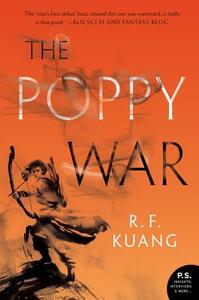Take a photo of a barcode or cover
adventurous
dark
emotional
tense
fast-paced
dark
informative
I know this book has great reviews so I think this author’s style is just not for me. I did love the idea behind the shamans and the gods. I found that part really interesting. I did not care for the main character and the detailed war atrocities were too much for me. I tried reading the second book and finally had to dnf.
I am keeping my original review below because I would much rather remain honest to myself and to anyone who may see these reviews on this platform. However, upon my reread, I noticed so many more clever and brutal things: themes of autonomy (bodily autonomy in a scene related to childbearing, decision making re: wartime and people making selfish and stupid decisions, and social in that so many people are distinctly kept apart because of class). There was also good discussion of classism and colorism in the context of war/privilege/hierarchy.
I still found myself bored and itching to leave the academy in the first half. That's definitely a me thing because I've always hated school and competition settings. They just don't interest me. But this time I found a lot more appreciation for the ways Rin was set apart (by pledging Lore) and ostracized (colorism/classism) during her time at the academy - and how that shaped how she handles actual wartime. Plus, recalling how her time in the academy was cut short and they were dragged into war early really hammered home the things that I originally thought were childish and annoying. Because Rin (and most of the other characters we follow) is still a child and she is supposed to be confused and torn between duty and her own childishness. And that dichotomy is brilliantly done.
And I'm so so excited to finally be continuing the series.
See below for my original review:
--
2.5 stars rounded up.
This one is hard to rate properly because it feels like it should be two books. There's the first book that is like literally every YA book with a prestigious murder academy or murder competition trope (honestly, it's been done; can we retire this trope please?). There's some angsty teenage feelings of inadequacy, which is all brilliantly resolved by our character getting special after hours help from someone unexpected (seriously, you've read this exact story before, I promise).
So once we finally get through all that, we get to the war that's guaranteed by the title. In true real-life war fashion, there's a lot of waiting around and trying to wrangle civilians and dealing with petty politics. Alas, this does not make for interesting reading and ends up bogging down the pace (which finally, briefly picked up after all that murder school nonsense). Then we throw in a few more totally unexpected (and by that I mean you could see them coming from the beginning of the book) YA fantasy tropes.
BUT it's also partnered with non-European cultural and historical influence. There's a very unique magic system. It deals really well with racism/classism, the vulgarity and violence of war, and the dehumanization of the enemy. Rin also finally stops being the whiny YA heroine she's been for the entire book and becomes a dramatic, morally gray anti-hero - right before the book ends.
The biggest flaws for me were pacing and tropes. The pacing meant that if I was reading this book instead of listening to the audio, I probably would have given up because very little of interest happens for long stretches in this book.
I still found myself bored and itching to leave the academy in the first half. That's definitely a me thing because I've always hated school and competition settings. They just don't interest me. But this time I found a lot more appreciation for the ways Rin was set apart (by pledging Lore) and ostracized (colorism/classism) during her time at the academy - and how that shaped how she handles actual wartime. Plus, recalling how her time in the academy was cut short and they were dragged into war early really hammered home the things that I originally thought were childish and annoying. Because Rin (and most of the other characters we follow) is still a child and she is supposed to be confused and torn between duty and her own childishness. And that dichotomy is brilliantly done.
And I'm so so excited to finally be continuing the series.
See below for my original review:
--
2.5 stars rounded up.
This one is hard to rate properly because it feels like it should be two books. There's the first book that is like literally every YA book with a prestigious murder academy or murder competition trope (honestly, it's been done; can we retire this trope please?). There's some angsty teenage feelings of inadequacy, which is all brilliantly resolved by our character getting special after hours help from someone unexpected (seriously, you've read this exact story before, I promise).
So once we finally get through all that, we get to the war that's guaranteed by the title. In true real-life war fashion, there's a lot of waiting around and trying to wrangle civilians and dealing with petty politics. Alas, this does not make for interesting reading and ends up bogging down the pace (which finally, briefly picked up after all that murder school nonsense). Then we throw in a few more totally unexpected (and by that I mean you could see them coming from the beginning of the book) YA fantasy tropes.
BUT it's also partnered with non-European cultural and historical influence. There's a very unique magic system. It deals really well with racism/classism, the vulgarity and violence of war, and the dehumanization of the enemy. Rin also finally stops being the whiny YA heroine she's been for the entire book and becomes a dramatic, morally gray anti-hero - right before the book ends.
The biggest flaws for me were pacing and tropes. The pacing meant that if I was reading this book instead of listening to the audio, I probably would have given up because very little of interest happens for long stretches in this book.
dark
The Poppy War is a gripping fantasy book. I found it hard to put the book down and it, surprisingly, read very quickly. There were a lot of really strong aspects of this book. The character work was very well done. Everyone felt incredibly alive to me, especially Rin. I really enjoyed seeing her descent into near-madness throughout the story. I also felt that we had a very strong sense of place in this story. The academy was well written and I felt very well established in it.
My biggest issue with this book was actually the thing I liked the most about Kuang's other work, Yellowface. I felt that the pacing was very choppy and I had the sense that we were dropped into the aftermath of the action scenes rather than living them. This worked very well in Yellowface because that book was very much a stream of consciousness from the narrator. In The Poppy War, it took away from the story in many ways. At the beginning, in the academy and in Tikany, it worked because there wasn't much action to be skirting around. Past the midway point, I found myself feeling like I was zoning out, but that was just where the scenes were beginning. This took away from the story for me because I started to lose my footing in the world. I didn't quite feel like I had a grasp on what was going on at any given moment.
That being said, the way this story represents history and deals with the topic of genocide makes it very hard to look away. It was poignant and very cutting. Learning about what happened to Venda was heart crushing. Kuang does not shy away from the hard topics and watching Rin come to terms with the decision she had to make had me on the edge of my seat.
I really enjoyed reading The Poppy War, I just wished things had been slowed down and more thoroughly drawn out. I would've liked more direct action around the midpoint and a bit more time at the academy. I will absolutely be picking up the next installment of the series.
My biggest issue with this book was actually the thing I liked the most about Kuang's other work, Yellowface. I felt that the pacing was very choppy and I had the sense that we were dropped into the aftermath of the action scenes rather than living them. This worked very well in Yellowface because that book was very much a stream of consciousness from the narrator. In The Poppy War, it took away from the story in many ways. At the beginning, in the academy and in Tikany, it worked because there wasn't much action to be skirting around. Past the midway point, I found myself feeling like I was zoning out, but that was just where the scenes were beginning. This took away from the story for me because I started to lose my footing in the world. I didn't quite feel like I had a grasp on what was going on at any given moment.
That being said, the way this story represents history and deals with the topic of genocide makes it very hard to look away. It was poignant and very cutting. Learning about what happened to Venda was heart crushing. Kuang does not shy away from the hard topics and watching Rin come to terms with the decision she had to make had me on the edge of my seat.
I really enjoyed reading The Poppy War, I just wished things had been slowed down and more thoroughly drawn out. I would've liked more direct action around the midpoint and a bit more time at the academy. I will absolutely be picking up the next installment of the series.
adventurous
dark
emotional
tense
medium-paced
Plot or Character Driven:
A mix
Strong character development:
Complicated
Loveable characters:
Yes
Diverse cast of characters:
Complicated
Flaws of characters a main focus:
No
adventurous
hopeful
medium-paced
Plot or Character Driven:
Character
Strong character development:
Yes
adventurous
challenging
emotional
fast-paced
adventurous
emotional
tense
fast-paced





